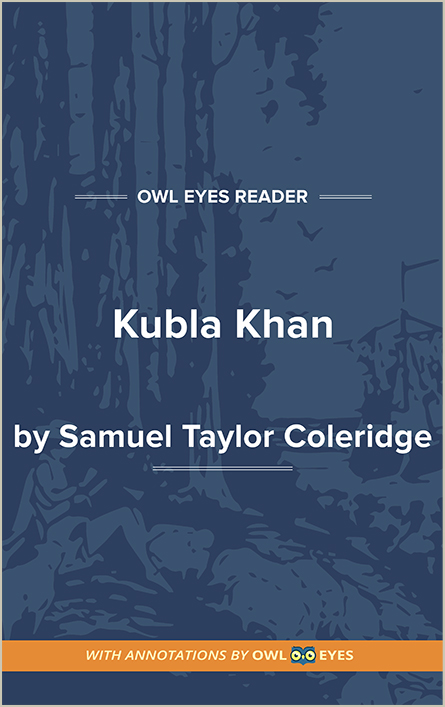- Annotated Full Text
- Literary Period: Romanticism
- Publication Date: 1816
- Flesch-Kincaid Level: 9
- Approx. Reading Time: 1 minute
Kubla Khan
In 1797, Samuel Taylor Coleridge wrote “Kubla Khan,” a poem that is often considered his signature work. When he eventually published the poem in 1816, Coleridge wrote an introduction that mythologized the story of its composition. As Coleridge tells it, one evening he drifted off to sleep while reading about Kubla Khan’s palace at Xanadu. He awoke with a sudden burst of inspiration, fueled by the opium he had been taking for his health, and furiously began writing. He was soon interrupted by a stranger at the door, which broke his creative trance. The poem he crafted from the fragments became “Kubla Khan,” whose primary subject concerns the frustrations and imperfections of the artistic process. The first two stanzas of the poem describe Xanadu, an earthly paradise through which runs a river. The river becomes Coleridge’s guiding conceit for the artistic imagination, a way to describe its deep intuitive sources, tremendous energies, and inevitable imperfections. The poem takes a turn at the end. In the final stanza, the speaker brings the focus upon himself, invoking the poetic muse in his mission to tell of Xanadu. It becomes clear that the first two stanzas are a poem within the poem, a description of paradise arising from the speaker’s crazed fantasies. Paradise and artistic perfection, after all, exist solely in the realm of the imagination.
- Annotated Full Text
- Literary Period: Romanticism
- Publication Date: 1816
- Flesch-Kincaid Level: 9
- Approx. Reading Time: 1 minute

